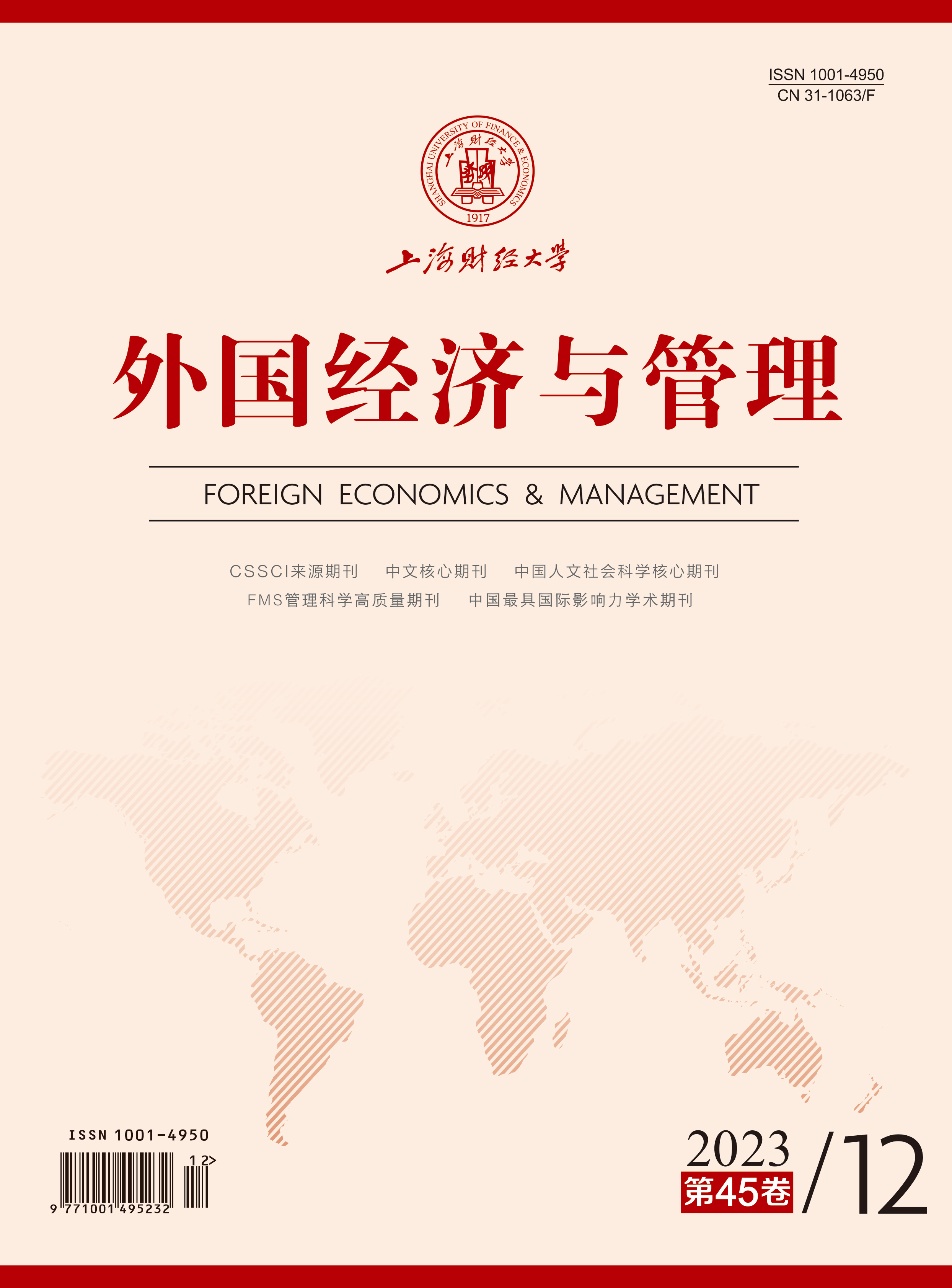过度教育与离职率高涨这两个看似矛盾的现象为何会并存发生,解答这一问题对提升劳动者就业质量和企业管理绩效具有重要意义。本文在理论分析过度教育影响劳动者离职倾向内在机制的基础上,以中国综合社会调查(CGSS)2015年微观调查数据为研究样本,运用有序Probit模型研究了过度教育对劳动者离职倾向的影响,并对其作用机制进行了实证检验。研究结果表明,过度教育显著增加劳动者的离职倾向,且该结论在考虑内生性问题以及一系列稳健性检验后依然成立。机制检验结果表明,过度教育会通过降低工作满意度和工作安全感来增加劳动者的离职倾向。进一步分析表明,过度教育未增加劳动者的在职培训机会和外部雇佣机会感知,其在劳动者职业发展中更可能是绊脚石而不是垫脚石。本文深化拓展了过度教育影响劳动者离职倾向的理论阐述机制,并为无边界职业生涯背景下的劳动者就业和企业人力资源管理提供了思考方向和经验证据。
过度教育与劳动者离职倾向
摘要
参考文献
1 姜泽许. 高绩效人力资源实践对员工离职倾向的影响研究[D]. 北京: 北京科技大学, 2014.
3 马惠霞, 宋英杰, 刘瑞凝, 等. 情绪的动机维度对趋避行为的影响[J]. 心理科学, 2016, 39(5): 1026-1032. DOI:10.16719/j.cnki.1671-6981.20160501
10 Aina C, Pastore F. Delayed graduation and overeducation in Italy: A test of the human capital model versus the screening hypothesis[J]. Social Indicators Research, 2020, 152(2): 533-553. DOI:10.1007/s11205-020-02446-0
11 Allen J, Van Der Velden R. Educational mismatches versus skill mismatches: Effects on wages, job satisfaction, and on-the-job search[J]. Oxford Economic Papers, 2001, 53(3): 434-452. DOI:10.1093/oep/53.3.434
12 Cable D M, DeRue D S. The convergent and discriminant validity of subjective fit perceptions[J]. Journal of Applied Psychology, 2002, 87(5): 875-884. DOI:10.1037/0021-9010.87.5.875
13 Chowdhury F. Demographic factors impacting employee turnover in the private banking sector of Bangladesh[J]. International Journal of Business and Management Invention, 2015, 4(11): 46-54.
14 Gan K P, Lin Y, Wang Q. Public service motivation and turnover intention: Testing the mediating effects of job attitudes[J]. Frontiers in Psychology, 2020, 11: 1289. DOI:10.3389/fpsyg.2020.01289
15 Harari M B, Manapragada A, Viswesvaran C. Who thinks they’re a big fish in a small pond and why does it matter? A meta-analysis of perceived overqualification[J]. Journal of Vocational Behavior, 2017, 102: 28-47. DOI:10.1016/j.jvb.2017.06.002
16 Hur H, Bae K B. Does discrepancy between job choice motivation and satisfaction and education–job mismatch affect turnover intention of nonprofit employees?[J]. Public Organization Review, 2021, 21(3): 577-593. DOI:10.1007/s11115-021-00513-9
17 Konno S, Munakata M. Skill underutilization is associated with higher prevalence of hypertension: The Watari study[J]. Journal of Occupational Health, 2014, 56(3): 225-228. DOI:10.1539/joh.13-0146-BR
18 Luksyte A, Spitzmueller C. When are overqualified employees creative? It depends on contextual factors[J]. Journal of Organizational Behavior, 2016, 37(5): 635-653. DOI:10.1002/job.2054
19 Mavromaras K, McGuinness S, O’Leary N, et al. Job mismatches and labour market outcomes: Panel evidence on university graduates[J]. Economic Record, 2013, 89(286): 382-395. DOI:10.1111/1475-4932.12054
20 Maynard D C, Joseph T A, Maynard A M. Underemployment, job attitudes, and turnover intentions[J]. Journal of Organizational Behavior, 2006, 27(4): 509-536. DOI:10.1002/job.389
21 Peiró J M, Sora B, Caballer A. Job insecurity in the younger Spanish workforce: Causes and consequences[J]. Journal of Vocational Behavior, 2012, 80(2): 444-453. DOI:10.1016/j.jvb.2011.09.007
22 Schreurs B, Hamstra M R W, Jawahar I M, et al. Perceived overqualification and counterproductive work behavior: Testing the mediating role of relative deprivation and the moderating role of ambition[J]. Personnel Review, 2020, 50(3): 1038-1055.
23 Shin S I, Kim C J. The influence factors on organization. job embeddedness and turnover intention[J]. Journal of Human Resource Management Research, 2020, 27(5): 87-121. DOI:10.14396/jhrmr.2020.27.5.87
引用本文
尤亮, 李根丽. 过度教育与劳动者离职倾向[J]. 外国经济与管理, 2023, 45(12): 80-95.
导出参考文献,格式为:





 2631
2631  3693
3693

